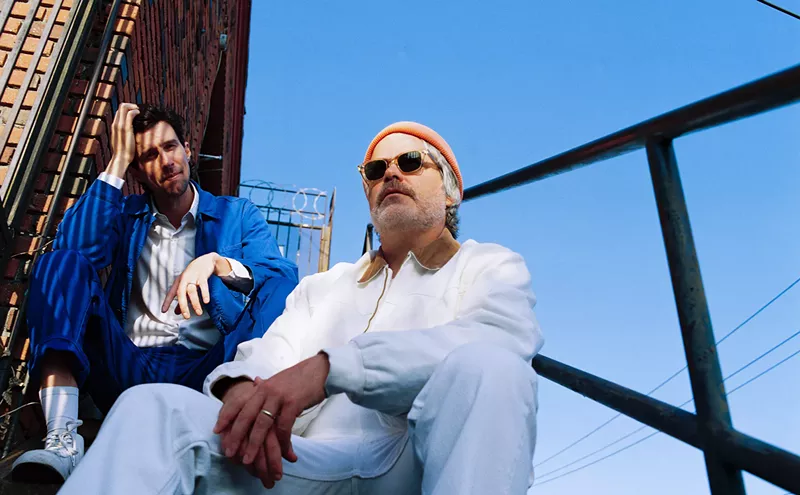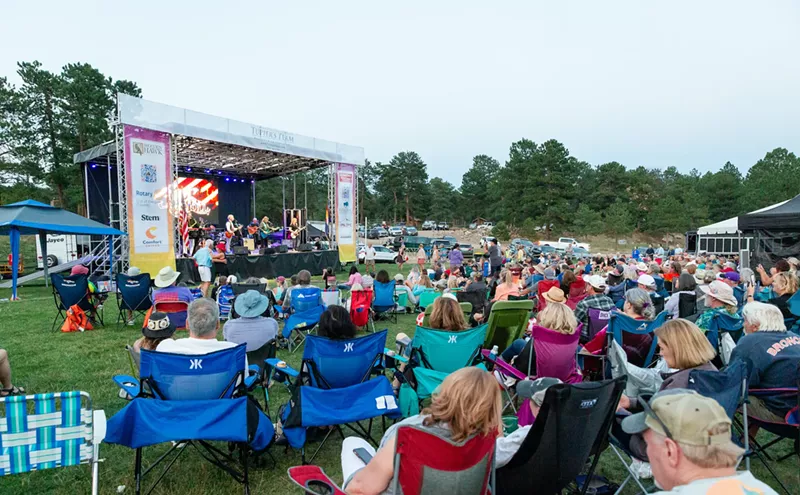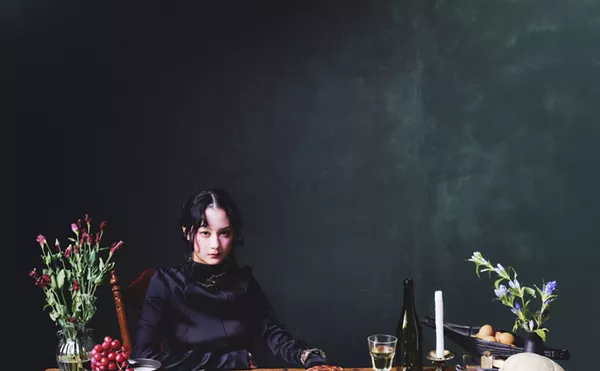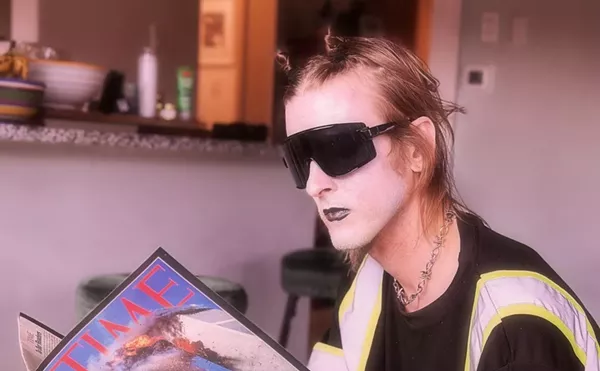As news of the fire in Oakland rolled in last Saturday morning, I frantically texted and called my friends and family in the Bay Area to make sure they were okay. If they didn't respond right away, I began combing their Facebook, Twitter and Instagram posts looking for signs that they had logged in over the last eight hours. I got lucky; my loved ones who were at the Ghost Ship warehouse made it out alive. But so many others did not.
Some of my loved ones lost friends, artistic collaborators and bandmates. Some lost their entire community. As a person who figured out how to be myself and make my own art through being a part of the Denver DIY community, I was hit hard emotionally by what happened — hundreds of hours of my life have been spent in spaces just like Ghost Ship. I have toured the country as a musician, playing and staying in warehouses just like Ghost Ship. At home, I have organized shows and dance parties inside structures just like Ghost Ship. I have friends and family across the country currently living — and thriving — in places just like Ghost Ship. I have met important people and made lasting friendships in rooms just like Ghost Ship.
The fire in Oakland not only took 36 lives, it ripped open and exposed our global DIY community, a network of people who exist everywhere but operate mostly under the radar. After the fire, misinformation spread, and there was an apparent complete misunderstanding of what DIY warehouses like Ghost Ship are and how they function. A few fire departments have responded to the fire by cracking down on DIY spaces. In Baltimore — a city known in the DIY community as a hub for experimental art — artists utilizing the creative space Bell Foundry found themselves evicted earlier this week. And on Thursday, December 8, five people living at famed Denver DIY venue Rhinoceropolis were kicked out of their home after an inspection revealed fire-code violations.
But shutting down DIY community gathering spaces is not the answer. Instead, cities should first work to create dialogue with their artists.
The term "DIY" is both an ethos and a mode of artistic expression; do-it-yourself often means do-it-together. DIYers gather in basements, empty storefronts, old commercial spaces and warehouses in every city, every day. These art venues and practice spaces often offer what is called a "safe space" — a place where, regardless of your age, economic status, gender expression and personal-origin story, you are welcome to be an artist and participate in an art-centered community. When traditional "legit" concert venues, galleries and social-gathering places push us out and make us feel unwelcome, the DIY world is there to offer an open door.
Ghost Ship was not a rave; it was a show and dance party put on by hardworking artists. Like "DIY," the term "rave" also has a long history of being misunderstood: In the late ’90s, it seemed synonymous with drug use. But that night in Oakland, what was happening at Ghost Ship — and has been happening at places just like it for decades — was centered on art, music and the people who were creating it and enjoying it. Some say DIY spaces are unsafe, but such conditions like those found at Ghost Ship can be found anywhere. And assuming that any "non-traditional" place housing working artists is unfit is nonsense.
Warehouses that serve as homes like Ghost Ship exist for many reasons, chief among them affordability. Much like Oakland, Denver has seen real-estate prices skyrocket over the last half-decade, negatively affecting many people who were once able to sustain a life here while making art. The need for low-cost housing can lead to living in unsafe conditions, yes. But when there is no other solution, humans do what they can to survive. Forcing them out of economically viable living spaces is not the answer.
As Denver grows, there's a lot of talk about our "vibrant arts community." When an arts community can't afford to live in the city that uses its creative output as capital, the art stops. When affordable spaces are taken away, marginalized people who found a home and a place to be within a welcoming creative community are left without options. The fire in Oakland should be a wake-up call for Denver, the takeaway being that we need more affordable living and working spaces for artists right now. Working with the artists who live and create in Denver — not kicking them out — should be the first step.

Audio By Carbonatix
[
{
"name": "GPT - Billboard - Slot Inline - Content - Labeled - No Desktop",
"component": "23668565",
"insertPoint": "2",
"requiredCountToDisplay": "2"
},{
"name": "STN Player - Float - Mobile Only ",
"component": "23853568",
"insertPoint": "2",
"requiredCountToDisplay": "2"
},{
"name": "Editor Picks",
"component": "17242653",
"insertPoint": "4",
"requiredCountToDisplay": "1"
},{
"name": "Inline Links",
"component": "18838239",
"insertPoint": "8th",
"startingPoint": 8,
"requiredCountToDisplay": "7",
"maxInsertions": 25
},{
"name": "GPT - 2x Rectangles Desktop, Tower on Mobile - Labeled",
"component": "24956856",
"insertPoint": "8th",
"startingPoint": 8,
"requiredCountToDisplay": "7",
"maxInsertions": 25
},{
"name": "Inline Links",
"component": "18838239",
"insertPoint": "8th",
"startingPoint": 12,
"requiredCountToDisplay": "11",
"maxInsertions": 25
},{
"name": "GPT - Leaderboard to Tower - Slot Auto-select - Labeled",
"component": "17676724",
"insertPoint": "8th",
"startingPoint": 12,
"requiredCountToDisplay": "11",
"maxInsertions": 25
}
]











